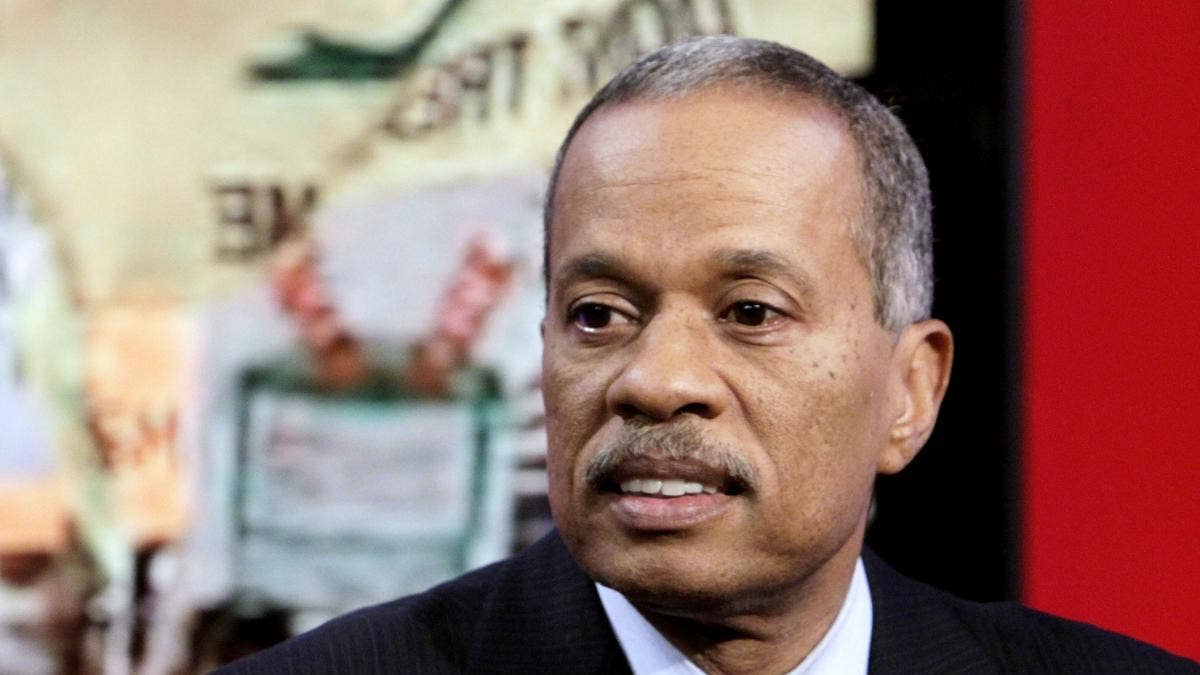
Juan Williams, Fox News contributor and former NPR news analyst / AP
With listeners, pundits, and even some politicians saying National Public Radio made a bad call in firing news analyst Juan Williams, the news organization's ombudsman commented on Thursday night, saying that the firing was poorly handled, but necessary.
"Even though NPR handled this situation badly, the fact remains that NPR must uphold its journalistic standards," Alicia Shepard wrote in a blog post.
Williams, a Fox News contributor and 10-year NPR veteran, was fired from the popular public radio syndicate for making comments on "The O'Reilly Factor" about what he describes as his "visceral reaction" to airplane passengers in "Muslim garb." "I get worried. I get nervous," he said.
Shepard, as NPR's ombudsman, is described on her blog as "the public's representative to NPR, serving as an independent source regarding NPR's programming."
It's the second time the news organization has carefully qualified its treatment of Williams in public. NPR CEO Vivian Schiller said Williams' comments should have been "between him and his psychiatrist or his publicist," but later apologized.
"I don't know what their values are now with them attacking me as some kind of crazy person," Williams said on "Fox & Friends" Friday morning. "But I will tell you my values are: I'll tell you the truth if you ask me a question, and I don't care if it fits the left wing position or the right position." He cited his successful writing and reporting career as testament to his credibility. "I've been in tense situations throughout my life," he said. "I am not an erratic person."
Shepard said the "hastily made" announcement triggered a "public relations nightmare" that could have been avoided. "NPR could have waited until his contract ran out, or possibly suspended him pending a review," she writes.
NPR received more than 8,000 emails weighing in on the incident one way or the other, enough to crash their "Contact Us" website by noon Thursday, Shepard said.
Fox News also received a significant number of emails from viewers.
"They are as mad as hell, and want everyone to know it," Shepard wrote of irate phone calls from listeners. "It was daunting to answer the phone and hear so much unrestrained anger."
But Shepard also noted that many listeners demanded why it took so long to fire Williams. His appearances on "The O'Reilly Factor" have "caused heartburn repeatedly for NPR," she wrote, and "[s]ince I became Ombudsman in October 2007, no other NPR employee has generated as much controversy."
And she questioned how Williams, a prolific writer on civil rights, would have reacted had the tables been turned.
"I can only imagine how Williams, who has chronicled and championed the Civil Rights movement, would have reacted if another prominent journalist had said: ‘But when I get on a plane, I got to tell you, if I see an African American male in Dashiki with a big Afro, I get worried. I get nervous," Shepard wrote, echoing Williams' syntax in his comment about Muslim airline passengers.
"Well, first of all, let me say, what a caricature of a black male," Williams said on Fox & Friends Friday morning.
"But secondly, how stupid. Maybe she needs to read Eyes on the Prize or some of the books that I've written about the civil rights era, because she'll notice that there was nobody taking an airplane and crashing it in to the Twin Towers or the Pentagon in the course of the civil rights movement."
Though Shepard cites Williams' comments as an example of stereotyping, she writes that the firing itself is not racially motivated. "It's not about race. It's also not about free speech, as some have charged. Nor is it about an alleged attempt by NPR to stifle conservative views," she said.
"Instead, this latest incident with Williams centers around a collision of values: NPR's values emphasizing fact-based, objective journalism versus the tendency in some parts of the news media, notably Fox News, to promote only one side of the ideological spectrum."
For his part, Williams says although he expected the public reaction to the incident to be politically polarized, he was surprised to find that people on both sides of the aisle spoke out in his support.
"What I see is that everyone is saying you know what? In America, you should be able to say how you feel," he said. "You can talk to people across the political aisle and be honest with them. What is the violation there?"




